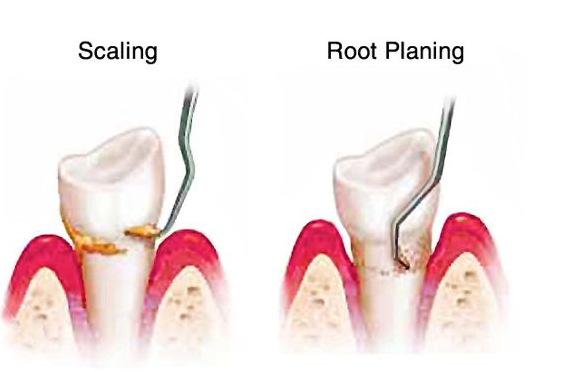Dental scaling and root planing are two common procedures performed to maintain oral health. They are common procedures performed by cosmetic dentists to improve your smile and increase the strength of your teeth. It’s a necessary part of your dental treatment for healthy teeth and gums. This blog post shows how to know if you’re suffering from scaling and root planing pain.
However, you may have some unpleasant side effects if you’ve had scaling or root planing before.
What is Scaling and Root Planing?
Scaling and root planing are two common dental procedures used to remove excess tooth tissue and correct various dental problems. Scaling is a simple procedure that involves removing the topmost layer of tooth tissue with a scalpel.
Root planing is a more involved procedure that involves removing the entire root surface of the tooth. Both approaches can cause pain, and patients should be prepared for the discomfort they may experience.
Pain Due to Scaling and Root Planing
Scaling and root planing are often done as dental restoration or repair. The procedure involves removing excess tooth material and restoring it to its original shape.
If you’re experiencing pain during scaling and root planing, it’s essential to speak with your dentist about the issue. They may provide relief by adjusting the procedure or recommending another option.
Scaling and Root Planing Benefits
You may find many benefits to scaling and root planing.
- First, these procedures help to improve the overall appearance of your teeth.
- Second, they can help reduce the risk of tooth decay and other dental problems.
- Third, they can help to improve your overall oral health. If you consider either of these procedures, be sure to speak with your dentist about your specific needs and concerns.
What are the Treatments of Scaling and Root Planing?
There are a few different treatments for scaling and root planing pain. Some people take medication to relieve the pain, while others use heat or ice to reduce the pain. A dentist may also need to remove some of the tooth’s enamel in some cases.
1. scaling and root planing
2. root canal treatment
3. endodontic treatment
4. periodontal treatment
5. implant treatment
Signs of Scaling and Root Planing Pain
If you’re experiencing pain while scaling or root planing, it’s likely due to the pressure and friction the tools are placing on your teeth. Here are the signs:
- You’re experiencing extreme pain when scaling or root planing.
- You have to stop and frequently rest because of the pain.
- You have to use more force than usual to complete the task.
- You’ve had this problem before, and it’s always been a problem when you’ve tried to do these tasks with pain before.
Tips for Pain Management
If you’re feeling pain during or after scaling and root planning, there are a few things you can do to manage the pain effectively.
- Make sure to take ibuprofen or another pain reliever as directed.
- Try to find a comfortable position for yourself, such as sitting or lying down.
- Relax as much as possible and avoid thinking about the pain.
- If the pain becomes too great, seek medical attention.
When to Visit a Dentist?
It is essential to visit a dentist as soon as possible if you are having pain with scaling and root planing. However, pain can vary significantly from person to person, so it is crucial to speak with your dentist about your symptoms.
Depending on the severity of your pain, they may recommend various treatments, such as medication or surgery.
If your pain is severe, it is also important to record the dates, times, and medications you are taking for scaling and root planing pain so that you can consult with your dentist if the pain worsens or changes.
What to do after Scaling and Root Planing?
If you have recently undergone scaling and root planing, you may be feeling some pain. Solutions are:
1. Ice the area after the procedure and continue taking ibuprofen or another pain reliever as directed.
2. Elevate the area if possible.
3. Apply a topical anesthetic cream, ointment, or spray to the area before the procedure and continue using it for one week following the procedure
Conclusion
Most people can remember the pain they felt when bitten by mosquitoes or other insects. But if you don’t do anything about it, the pain will stay in your body and affect your health. The pain caused by insect bites may last for several days.
Hi, I am Adam Smith, Admin Of TechSketcher, Creative blogger and Digital Marketer.
